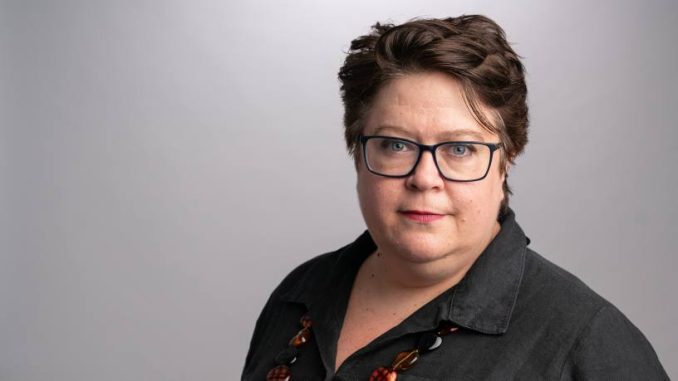
For the past two months it has been conference season, so I have been on the road. While I find myself on stage in places like Munich, Luxembourg and Lisbon recently, my thoughts turn to the conversations you have when you meet new people and discuss what each other does.
Because my travels have not just been about work these past two months, it’s also been about friends and pleasure. (I saw Taylor Swift at Murrayfield Stadium in Edinburgh and had thought about comparing innovation in financial services with the Eras Tour, but alas, I am not that clever.)
However, I wanted to start out with conversations I’ve had when I don’t need to worry about pockets in my dress (for the mic pack, my dear). A friend of mine celebrated her 60th birthday a week ago in a pub garden in west London. In between the burgers and rosé I got to chatting with a few of her friends from her days as an accountant at telecoms company Orange.
I often get asked the same two questions when I find myself outside fintech geekdom company (it does happen) and I reveal what I do for a living. The two questions are always:
“Can you explain bitcoin to me?”
And:
“Is Monzo a real bank?”
Let’s take the second question first. Is Monzo a real bank? I trust you will believe me when I say, the question is never: Are all these fintech apps on my phone above board? Instead, the question specifically focuses on Monzo. I usually get a nod and a smile when I tell them that, yes, Monzo has a banking licence, is regulated by the UK Financial Conduct Authority, and is indeed a real bank.
The question should be a clue to those within the industry that Monzo is very good at marketing. When a British person thinks of a new, digital-first bank, the provider of the hot coral cards are what comes to mind. That takes real work and (for those who know me) it isn’t free.
Then there is the bitcoin question. The question comes from real curiosity. What the person is asking is: “How can something that I don’t really understand, and no one I really know uses, supposedly be a big deal?”
I always try to explain bitcoin and cryptocurrencies in as plain and simple language as possible — especially as someone who has an intellectual fascination with cryptocurrencies but would not consider myself a promoter of them.
While talking to my beer garden companion the questions are common. “So, can I use bitcoin in Costa Coffee?” and “Why does the price go up and down?” and “Who are these miners and where do they live?” I do apologise to all the crypto gurus out there, I’m afraid my “plain and simple” explanations rarely result in new converts.
Heading back to Edinburgh, where I stayed with friends while attending the Taylor Swift concert (I’ve shoehorned Tay Tay in there somehow), I asked after their father. He lives nearby, is in his late 90s, is struggling with dementia, but is determined to continue independent living. I piped up — I wrote an article about all the work banks are doing with elderly care a few years ago, and I met this woman who launched a payment card specifically for people with dementia, I prattled on.
My friend interrupted me. Not to worry, his father banked with a well-known UK building society and the local branch manager would give him a call if anything troubling emerged in the account. Humans are definitely in the loop with banking on the borders of Scotland today.
Contrast these conversations with discussions at conference sessions and exhibit halls. These talks comment on “distracting” central bank digital currency projects, deciding which assets are ripe for tokenisation and fudging questions on stage about just how many jobs will be lost (replaced?) due to automation and artificial intelligence.
I can’t help but draw comparisons to the current media coverage of global elections, with the US presidential election dominating international coverage. On television, radio and in newsstand publications, pundits discuss candidate policy notes, economic indicators and geopolitical tensions that are impacting these elections. But these elections are determined by the conversations people are having in beer gardens and suburban kitchens. I have a sneaking suspicion these chats take on a different tone.
How do you marry the two types of conversations in order to benefit this banking industry? Most people on the street aren’t interested in hearing about the status of the global ISO 20022 cross-border financial messaging migration from Swift. But I am sure those who work in retail banking would like to learn more about the heroic bank manager in Scotland who has the mobile number of a customer’s 54-year-old son on speed dial.
And I wish many of those who class themselves in the “decentralised finance is the only future” camp have a chance to sit in a pub garden with an accountant to explain where all these bitcoin miners come from and where they all live.

